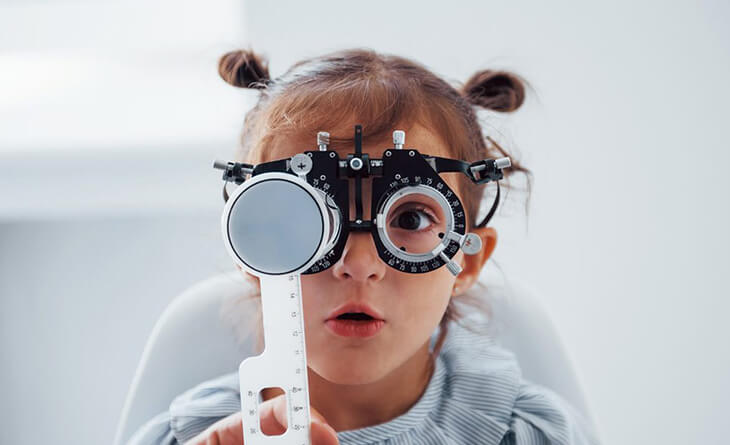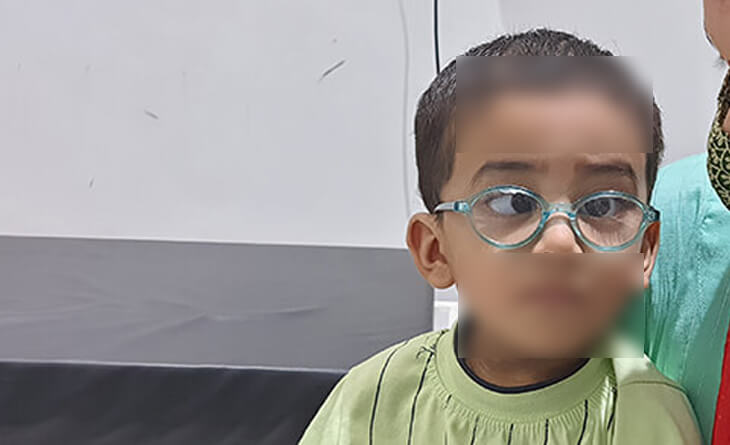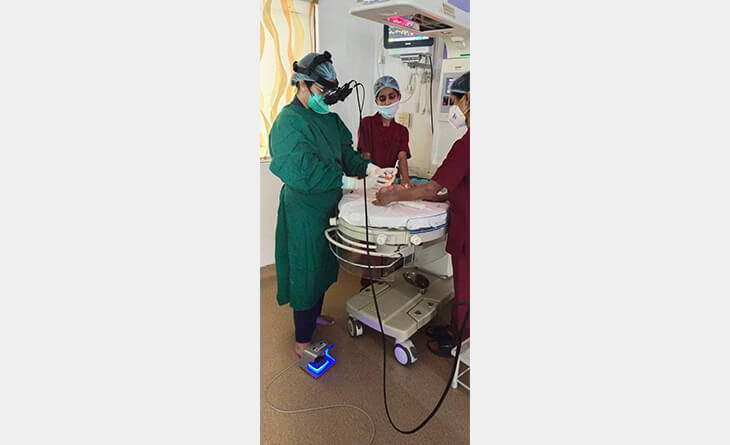Paediatric Ophthalmology
Eye problems in children get detected late as children do not notice or tell the parents till it is late. If left untreated, ophthalmological complications in children can lead to permanent eye defects. Thus, having a paediatric ophthalmologist is essential to preserve your child’s eyesight into adulthood.
As an expert ophthalmologist, Dr Anisha Gupta understands the delicate requirements of paediatric ophthalmology, and hence, adjusts all her procedures for optimal results and comfortable recoveries.

Conditions Treated by a Paediatric Ophthalmologist
Some common causes for eye problems in children include:
As a Paediatric ophthalmologist in Delhi, Dr Anisha gives ample time to the child to settle down and evaluate the child completely. She then suggests the correct treatment path and suggests surgery only if very essential.
Refractive Error Treatment
Refractive errors are structural changes in the eye, preventing light from focusing on the retina. Common refractive errors include myopia (near-sightedness), hyperopia (far-sightedness), and astigmatism. Myopia is most common in children.
Children with refractive errors usually show the following symptoms:
A paediatric ophthalmologist prescribes glasses for these errors. Your child gets minus glasses for myopia, and plus glasses for hyperopia.
If your child is older, they may get contact lenses. They may also opt for refractive surgery after 18 to remove their dependency on glasses or lenses.
Dr Gupta also prescribes medicines, lifestyle changes and exercises if required, to stop the glass power from increasing.
Squint Treatment
Strabismus, commonly called squint, refers to a condition where the eyes do not look in the same direction. The squinting eye follows this classification:

Common symptoms for strabismus include:
A paediatric ophthalmologist treats this condition in various ways, depending on the nature of the squint and any associated disorders like amblyopia (lazy eye). These may include:
Leaving a squint untreated can lead to permanently poor vision in the turned eye since the brain ignores signals from it to avoid double vision. Squint treatments today are highly effective and can restore the normal functioning of eyes by re-aligning the eyes.
Eye Allergies Treatment
Eye allergies are widespread in children, caused by numerous environmental reasons. Their symptoms involve eye irritation, watery and red eyes, and eyelid swelling.
Paediatric ophthalmologists offer several treatment options depending on the allergy’s severity, such as:
Always discuss any medication with your child’s ophthalmologist before opting for any treatment to ensure the safest outcome.
Paediatric Cataract Treatment
Cataracts involve the clouding of the lens. In children, this can cause permanent damage since their brains are still developing. Its symptoms include:
Cataract surgery involves phacoemulsification, i.e. breaking up the clouded lens with a laser, removing it, and placing an intraocular lens (IOL) in its place.
Unlike adults, children require specialised instruments and techniques for safe surgical experiences. Dr Gupta has the necessary facilities to ensure such sophisticated treatments for paediatric cataracts.

Retinopathy of Prematurity (ROP) Treatment
ROP happens when the blood vessels in the retina stop growing normally, in premature babies (born less than 34 weeks and less than 2 kg of weight, and require oxygen support in nursery). It is a potentially blinding disease, if not treated in time. All babies at risk of developing ROP are screened at 2-4 weeks after birth by an ROP specialist.
If the ROP does not resolve itself, your paediatric ophthalmologist uses one or more of the following treatments:
ROP needs urgent management or the child can lose vision forever.
For optimal results and improved eye health, you need an expert ophthalmologist in Delhi like Dr Anisha Gupta. As a leading specialist in numerous surgeries with access to the latest technologies, she promises high-quality solutions to every condition, while understanding the delicate care children need.
Contact us today and book a consultation to check your child’s eye health!
